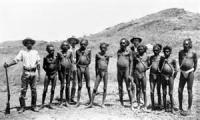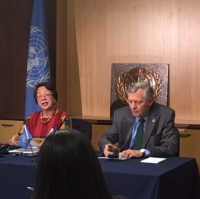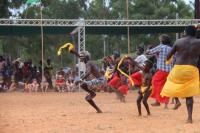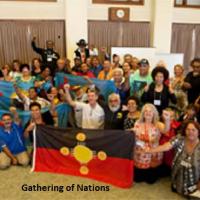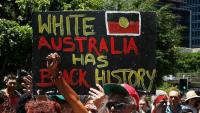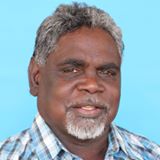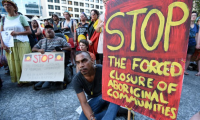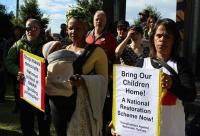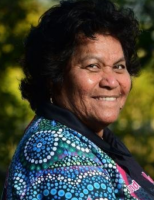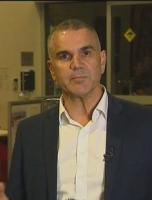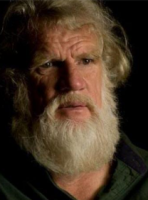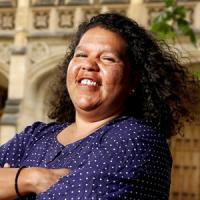Indigenous Australians are living in appalling conditions and young Aborigines in detention are essentially being punished for being poor, the United Nations special rapporteur on the rights of indigenous peoples, Victoria Tauli-Corpuz, has declared in a scathing report. A 15-day tour (20 March to 3 April) of Indigenous communities and high-level meetings revealed an "alarming" lack of self-determination, inappropriate housing developments and deeply disturbing levels of racism, she wrote. Taili-Corpuz blasted Australia for the "disturbing" number of Aboriginal children behind bars, saying the federal government needs to drive down Indigenous imprisonment rates.
"I'm quite shocked about the punitive measures being taken, which really
lessen the chances of a good future for these children," she said after
delivering her preliminary report.
"Many of the crimes they have committed are really petty crimes. Many of
them have come from child protection systems, which means that the child
protection systems are not working effectively."
Tauli-Corpuz wrote that as she travelled across the country
she found the prevalence of racism against Aboriginal and Torres Strait Islander
peoples deeply disturbing.
"This manifests itself in different ways, ranging from public stereotyped
portrayals of them
as violent criminals, welfare profiteers and poor parents and to discrimination
in the administration of justice."
During her tour Tauli-Corpuz examined
measures aimed at reducing indigenous disadvantage, jail conditions, land
rights issues and violence against women.
Some direct quotes from her report:
“I have also considered the multitude of recommendations previously issued by human rights mechanisms on the need to address the rights of Aboriginal and Torres Strait Islanders, as well as the numerous recommendations made by for example Royal Commissions, the Australian Human Rights Commission, national and state inquiries, coroners’ reports, etc. I find it disturbing that despite having been reiterated time and time again, many recommendations have not been implemented in practice. I want to emphasise that during my visit I have been particularly impressed and inspired by the strength of spirit and commitment of Aboriginal and Torres Strait Islanders to develop innovative measures to support their own communities.”
“The existence of indigenous led peak bodies in a wide range of areas provides valuable expertise. The Government could achieve significant progress in realising the rights of indigenous peoples if it consulted and worked much more closely with these organisations. I have observed effective community led initiatives in a range of areas including public health, housing, education, child protection, conservation and administration of justice, which all have the potential of making immediate significant positive changes in the lives of Aboriginal and Torres Strait Islanders. The key and constructive role played by the national representative body for indigenous peoples, the National Congress of Australia’s First Peoples, has been dismally disregarded by the Government. I regret that these organisations and initiatives remain unfunded or have had funding radically cut and urge the Government as a key priority to forge a new relationship with these organisations.”
“While Australia has adopted numerous policies aiming to address Aboriginal and Torres Strait socio-economic disadvantage, the failure to respect the right to self-determination and the right to full and effective participation in these is alarming. The compounded effect of these policies has contributed to the failure to deliver on the targets in the areas of health, education and employment in the Closing the Gap strategy and has contributed to aggravating the escalating incarceration and child removal rates of Aboriginal and Torres Strait Islanders.”
“The Indigenous Advancement Strategy initiated by the Government in 2014 entailed a radical cut of 534 million dollars to Aboriginal and Torres Strait Islander programmes and required competitive tender bids for organisations providing services to indigenous communities. The Strategy centralised programmes to the Department of the Prime Minister and Cabinet, and its implementation has been bureaucratic, rigid and wasted considerable resources on administration. As I have been travelling across the country, I have repeatedly been told about the dire consequences of the Indigenous Advancement Strategy.”
“The Government’s Indigenous Advancement Strategy has effectively undermined the key role played by Aboriginal and Torres Strait organisations in providing services for their communities. Around 55% of the tenders were awarded to non-Indigenous organisations, which shifted implementation to mainstream organisations that are not run by Aboriginal and Torres Strait Islanders nor based in their communities. Aboriginal and Torres Strait Islander organisations were forced to close or drastically downsize and reduce the basic services they were providing to their community in areas of health, housing and legal services. Non-indigenous organisations that fly in, fly out of communities have executed projects in culturally inappropriate ways and undermined capacity building in local indigenous led organisations.”
“Aboriginal and Torres Strait Islanders told me about feelings of powerlessness, loss of culture and lack of control over their lives. Suicide rates among Aboriginal and Torres Strait Islander people are escalating at a shocking rate and are double that of non-Indigenous Australians. The current situation has been described to me as a suicide epidemic. While I was in the Kimberley, I learnt about youth developed and driven projects to prevent suicide among Aboriginal adolescents and strongly urge that such initiatives be supported and replicated. Adopting a holistic approach to social and emotional well-being, which recognises the need for cultural connection, is key to achieve sustainable improvement in health indicators. I encourage the Government to finalise and resource the National Plan for Aboriginal and Torres Strait Islander Mental Health and Social and Emotional Wellbeing.”
“The application of compulsory income management was a key feature of the Northern Territory Intervention and its successor Stronger Futures legislation. The vast majority affected by these measures are Aboriginal and Torres Strait Islanders. I wish to recall that my predecessor raised significant criticism against the impact of the Northern Territory Intervention during his visit to Australia in 2009 and specifically of the Government’s suspension of the Racial Discrimination Act, which removed legal protections for Aboriginal peoples in the Northern Territory. While the Racial Discrimination Act was reinstated in December 2010 and legislation was revised and renamed Stronger Futures in 2012, it continues to apply punitive measures. I was told that these stigmatise Aboriginal communities by subjecting them to compulsory income management, forced participation in work for the dole schemes that pay individuals far less than an average reward rate as well as fines and welfare reductions for parents whose children are truant in school. As part of the compulsory income management in the Northern Territory, welfare payments are partially quarantined and provided through a BasicsCard, which restricts people’s purchases to specific stores and items. I was told by users of the Basicscard that it causes humiliation for example by forcing people to queue separately in shops.”
---------------------------------------------------------------------------------------------
The United Nations Information Centre in Canberra, the Australian capital, arranged a press conference for Ms Tauli-Corpus at the end of her visit. It can be heard by clicking here. The sound file is 33 minutes long.

